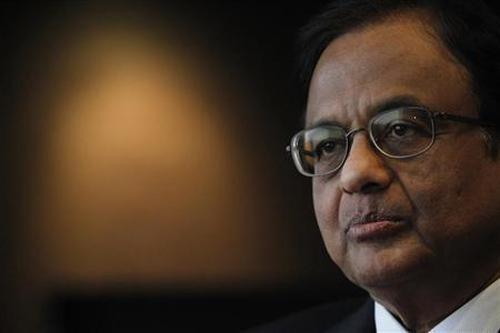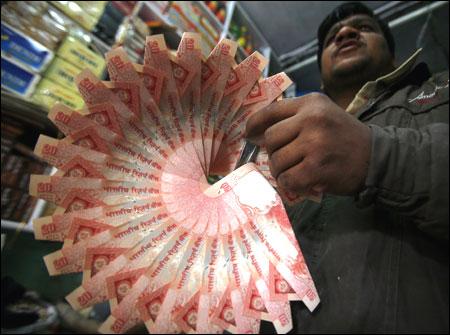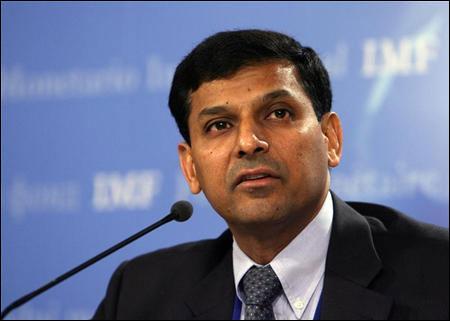Photographs: Edgard Garrido/Reuters BS Reporter in New Delhi
The question of whether or not a country can devalue its currency, have industry benefit from the protection which doing so provides and "get away with it" was the subject of discussion at the launch of a new book by Surjit S Bhalla.
Bhalla, an economics expert and media columnist, is managing director of a Delhi-based economic research, asset management, and emerging-markets advisory company.
Titled Devaluing to prosperity: Misaligned currencies and their growth consequences, the book is his attempt to consider the benefits and costs to a country from artificially pegging its currency below the "true" market value.
Releasing the book, Finance Minister P Chidambaram said the book's essential message was that "if you can do it (artificially undervalue your currency) and get away with it, then do it and get away with it".
Adding that India, running a large current account deficit (CAD), might not be able to do it with impunity at the moment.
"However", he added, smilingly gesturing to two chief economic advisors to the government in the audience, past and present, Shankar Acharya and Raghuram Rajan: "If they both agree and advise me to devalue the currency, we will do it" (traditionally, responsibility for managing the rupee has rested with the Reserve Bank of India).
...
When Rupee devaluation might be sensible?
Photographs: Reuters
The truth is, Chidambaram argued, for countries with a large CAD, the short-term effect of an artificially low currency would be to render imports cheaper and worsen the deficit; the boost to exports would happen over the slightly longer term. "But we all hold office for the short term," he pointed out.
Bhalla clarified his position was that a "devaluation from strength" was beneficial but not a "devaluation from weakness".
If a country experiencing high growth prevents its currency from appreciating to match, building reserves in the process, then it can give its domestic tradable sectors a big boost.
However, the data shows no such effect for a country under stress like India achieving anything comparable from devaluing its currency.
Nor, Bhalla added, can this strategy work over the long term. One effect of it is to keep domestic wages low, benefiting only companies.
This was visible, he added, in China, where real wages had long been lower than in India, in spite of much higher labour productivity. It helped Chinese industry grow but its effects were tapering, following internal pressure to rebalance the economy in favour of workers and consumers.
...
When Rupee devaluation might be sensible?
Image: Chief Economic Advisor Raghuram RajanPhotographs: Reuters
The world, he said, would not allow a China-like situation to happen again - the global imbalances it caused had wrecked the international economy.
Rajan agreed, saying the strategy of devaluation had helped no country in the long run and was "unworkable" for India. After all, he said, if wages were falling, how were people benefiting?
He compared the Japanese and Chinese experience with growth, saying China was now going through a painful rebalancing process, opposed by many powerful corporate interests with ties to the Communist Party.
Japan, meanwhile, was suffering through 20 years of stagnation that was "payback" for export-led manufacturing growth.
Bhalla disagreed, saying the reason Japan lost two decades of growth was that the international community had forced it to overvalue its currency in the mid-1980s, pressure it had never applied on China.
Japanese economist Shinji Takagi agreed. Japan, he said, had been rule-abiding about its currency, unlike China but people viewed China more favourably.
All present agreed that China couldn't be allowed to persist with global imbalances. But nobody knew how the Chinese economy could be forced into reform.





article